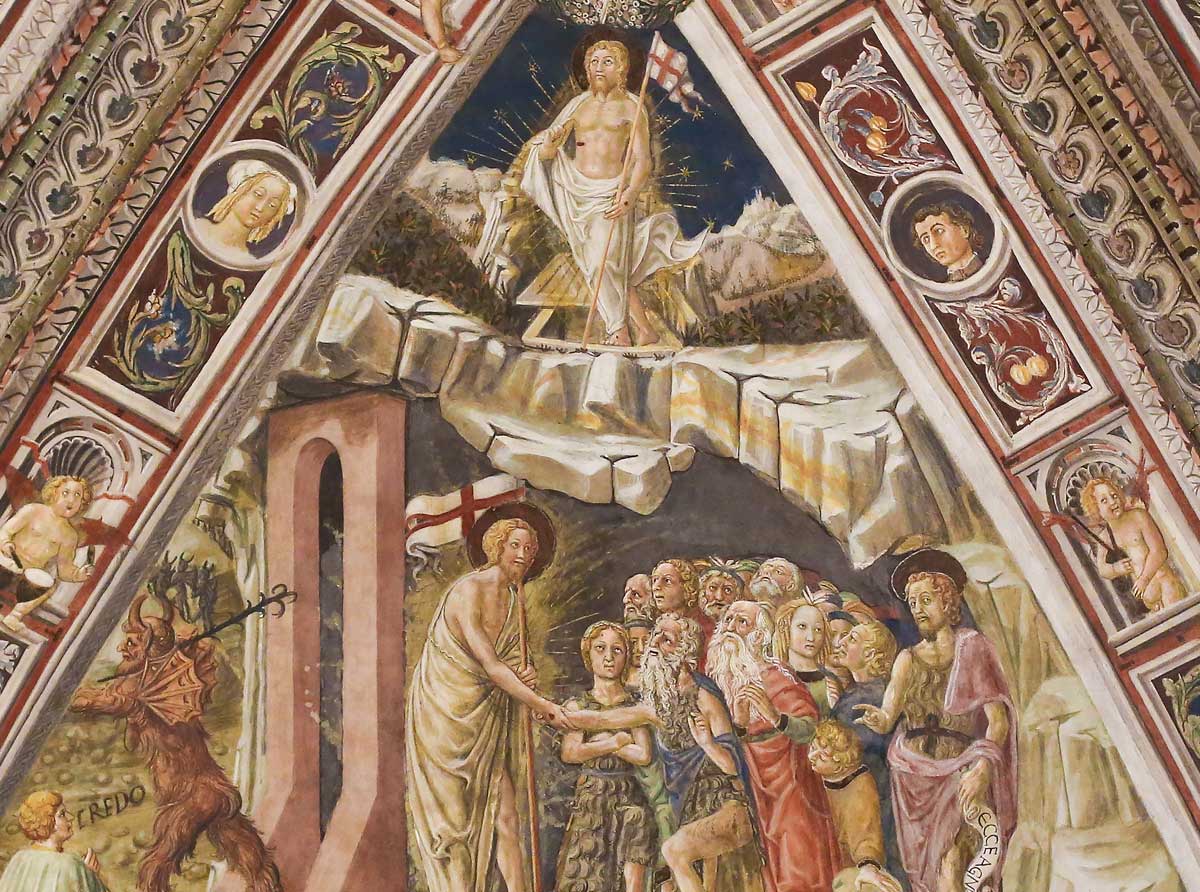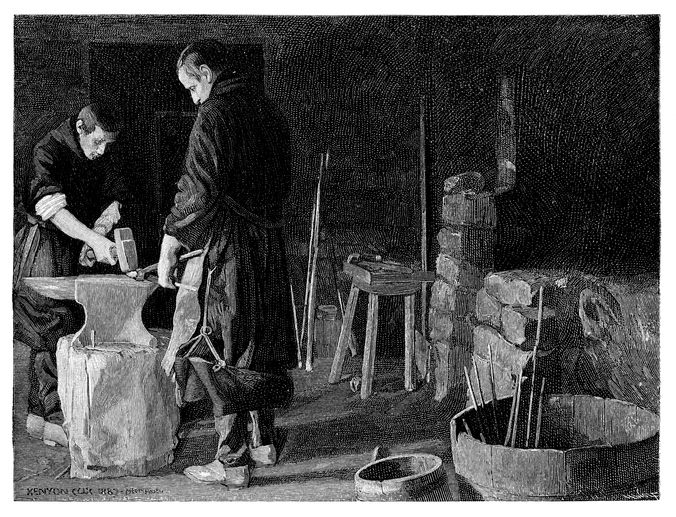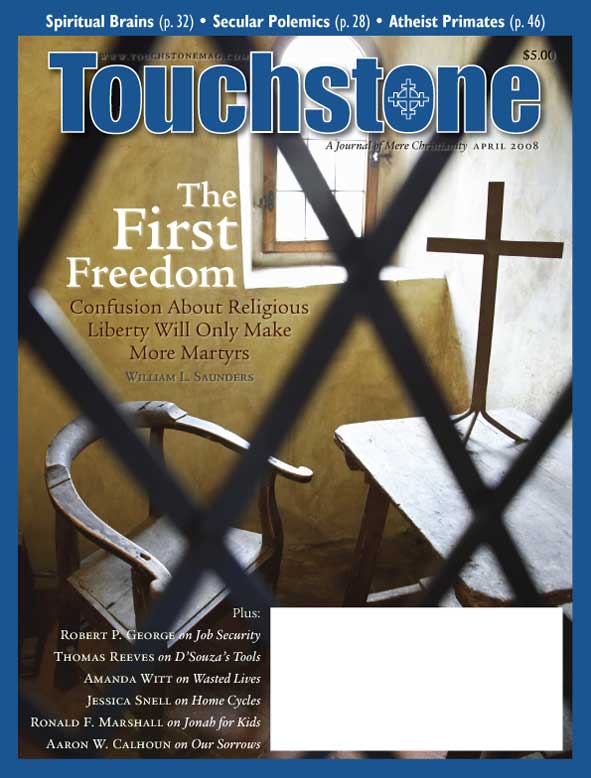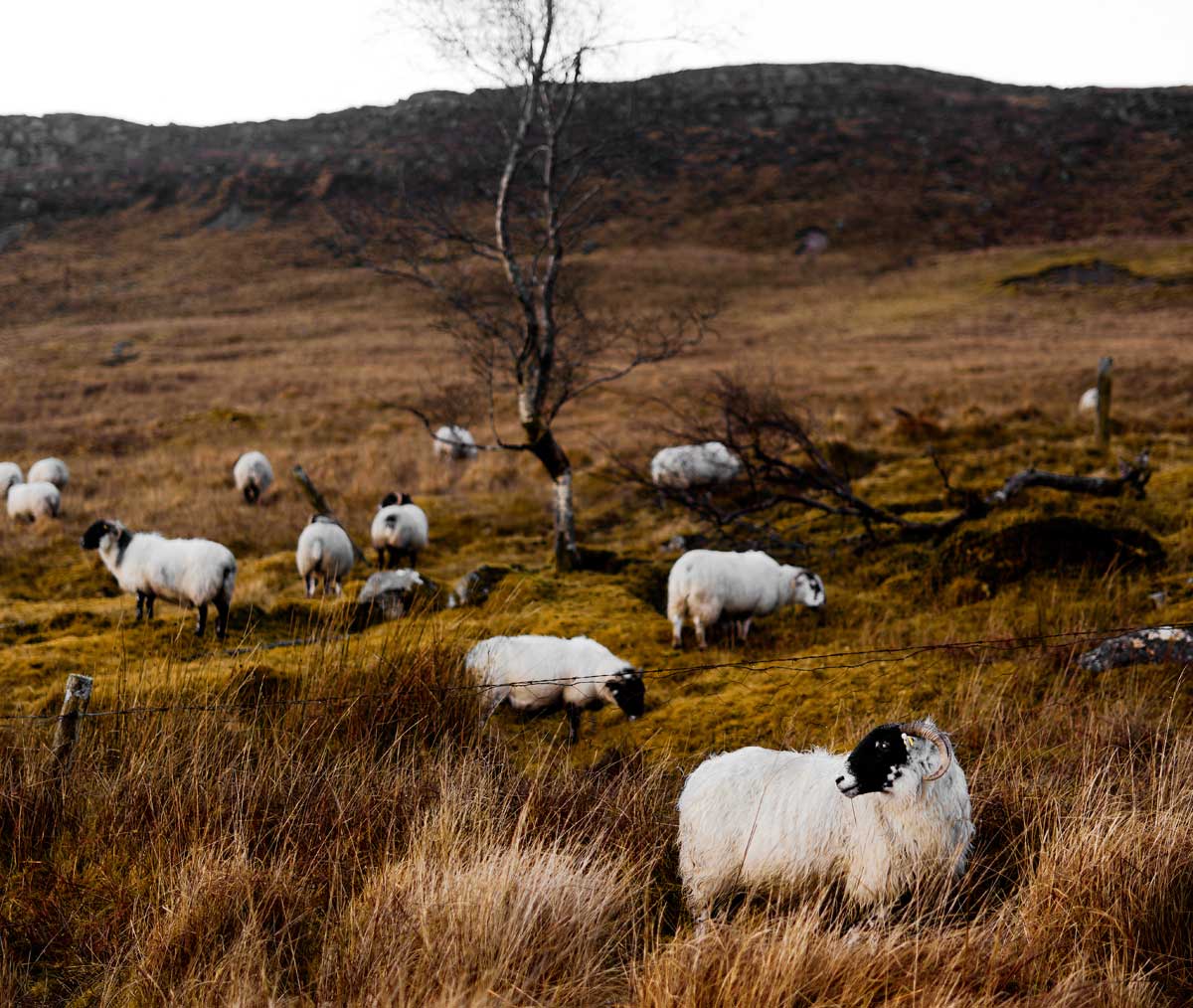View
Your Place in the Son
Robert P. George on How Vocation Guides Our Choices
When I was a boy, it was common for Catholics to reserve the word “vocation” to the calling of priests and nuns, those who would dedicate their lives to explicitly religious purposes. Sometimes this was connected to the error of “clericalism,” which in turn was often rooted in the belief that religion is the ultimate and overriding good that reduces the others to subordinate and instrumental status.
This is a mistake, and a serious one. Friendship with God is not the only true human good, and it does not render the others insignificant or reduce them to mere means to friendship with God.
Even a contemplative nun will wash her face and brush her teeth in the morning, and tell Mother Superior that she noticed water dripping onto the floor of the upstairs hallway and the roof might need repair, and pitch in with doing the dishes and the other chores that the sisters share in doing, and take a few minutes to send a birthday card to her niece in Rochester.
The human good is variegated: There are many distinct aspects of human well-being and fulfillment, many basic human goods. And that raises the question of vocation.
Integrating Choices
Inasmuch as these goods are reducible neither to one another nor to some deeper factor that is common to them all, they are in an important sense incommensurable. Friendship, knowledge, and religion, for example, are each an aspect of human well-being and, as such, provide a reason for acting whose intelligibility does not depend on any other reason to which it is subordinate or serves as a mere means.
We predicate goodness of them precisely because each, in its way, fulfills persons in a certain distinct dimension of their lives, and therefore each is capable of motivating us to act by appealing to what Aristotle called our “practical intellect”—that is, our rational grasp of what is humanly fulfilling. Each provides a reason for acting that is more than merely instrumental.
What then distinguishes morally upright from immoral choosing? Morality, it seems to me, is a matter of rectitude in willing. Its criterion is the conformity of our choices—our acts of will—with what is called the integral directiveness of the various basic forms of human good.
By this I mean that one should choose to do what is fully compatible with a will towards integral human fulfillment. Individual norms of morality, whether the more general sort (such as the Golden Rule or the Pauline Principle that one must never do what is in itself evil even for the sake of good consequences) or the more specific sort (such as the forbiddance of murder, rape, and theft), are entailments, or specifications, of this most fundamental moral principle.
If this is correct, many of our choices are not between morally right and morally wrong options, but between two or more morally legitimate options. The choice whether to read this essay, or to read something else, or to work out in the gym, or to socialize with friends, is a choice between several morally legitimate options.
We must lead lives of integrity and coherence—lives that make use, to the extent possible, of the talents we enjoy, and that accomplish, again to the extent possible, things we believe in and care about—but very different lives can fully embody integrity and coherence.
A man could, with integrity, lead a coherent life in which he marries and has children, works for an insurance company, coaches a Little League team, collects stamps, and enjoys watching Monday Night Football and Humphrey Bogart films. Another man could, with equal integrity, lead a coherent life as a parish priest who loves modern Russian music, serves as vocations director for his diocese, turns on the television set only to watch the evening news, and teaches Latin as an adjunct professor at a nearby university.
Vocation Found
So what does one do when faced with a range of good but incompatible possibilities? How does one structure his life when many paths are open, all of which offer him opportunities to use and develop his talents and to dedicate himself to things he cares about? How does one find his vocation?
Everyone must face these questions. Those who do not believe in God, or for whom belief in God is notional but not practically significant in their lives, will consider that they are simply on their own.
Some will suppose that utilitarianism or some other form of consequentialism provides a rational way of solving the problem. They propose to identify and choose the path that will, in the long run, produce the best proportion of benefit to harm.
But there is no such option. Utilitarianism necessarily presupposes that the various aspects of human well-being and fulfillment—the basic goods of human nature—are commensurable in a way that makes moral judgment essentially a matter of technical calculation.
But no one can calculate the greatest good when, for example, opportunities here and now to pursue the good of friendship and to pursue the good of knowledge are incompatible with each other. Thus, utilitarian calculation proves unworkable as a method of ethical decision-making.
A Christian—and I do not doubt that the same is true for people of at least some other faiths—will not regard himself as on his own in making important decisions about plans of living and ways of life. He will suppose that God has a plan for him, and that his task is to cooperate with God in discerning that plan and living it out.
Catholic Christians call this plan a vocation—and we believe that every person has one. God’s plan for each of us has to do with the whole of life, not just its more obviously “religious” aspects. Any individual’s vocation may include, as I believe mine includes, significant secular dimensions as well as specifically religious ones.
Prayer and meditation on what God is calling her to do will not ordinarily help Sister Margaret Mary decide whether to brush with Crest or Colgate. But it will help her to discern that she is called to be a contemplative nun. That is her vocation.
But her sister Theresa Elizabeth, who is married to John, and is the mother of Christine, Joseph, and Kevin, and who is co-owner of a small software company, and who volunteers in the middle school library and sings in the choir at St. Brendan’s, is also living out her vocation. She was able to discern God’s plan for her just as her sister did, through prayer and meditation.
I believe, and Christianity teaches, that God has a plan, a calling, a vocation in mind for each of us, and not just for those called to the priesthood and religious life. And prayer and other spiritual disciplines (together with our rational powers of inquiry, reflection, understanding, and judgment) are the means available to all of us, as gifts from God, to discern what the Lord is calling us to do.
Whole Choices
But there is more. For Christians (and this is true for members of other religious traditions), faith is at the center of life. When one has to make significant choices, it helps to understand not only which options are moral, in the sense that there is nothing morally wrong with choosing them, but also which ones make the highest and best use of one’s God-given talents—talents that impose responsibilities even more than they provide means of achievement, satisfaction, and recognition.
Moreover, faith enables one to bring his choices into a more coherent whole—in this sense, it plays an integrating as well as an architectonic role. It helps one live a life that hangs together—and this is valuable not only instrumentally (inasmuch as it enables one to use his talents more efficiently and to act for the sake of the human goods he cares about) but also intrinsically. For integrity (and here I am using the term broadly in the sense of self-integration, and not just in the moral sense) is itself an irreducible aspect of human well-being and fulfillment: a basic human good.
In focusing on the architectonic and integrating role of faith, I have been discussing situations in which important choices must be made between morally legitimate options. This should not be taken as a denial that faith is important in helping the believer choose uprightly between right and wrong.
I am among those who believe that we can identify moral norms and apply them to concrete cases by rational inquiry, understanding, and judgment, even apart from special revelation from God. Following St. Thomas Aquinas, I believe that God directs us to our proper ends in part by giving us a share in the divine power of reason by which we can understand moral truths.
To believe this is to believe in natural law, what St. Paul described as the law “written on the hearts” even of the Gentiles who had not the Law of Moses. And because it can be naturally known, Paul affirmed, it is sufficient for moral accountability.
But the Christian (or Jewish) believer in natural law will also believe that the norms God reveals, for example in the Decalogue, reinforce and illuminate what can be known by reason and make the norms of morality and the terms of their application available and clear to us when, for whatever reasons, our own judgment is not up to the task. Think, for example, of the way Jesus’ parable of the Good Samaritan illuminates the moral landscape even though we can know as a matter of natural law that we should treat each other with justice and compassion.
Ultimate Choices
Faith illuminates and enriches our understanding of what can be known by reason. But it also enables us to see the larger, lasting, and indeed cosmic significance of our choices and actions. It helps us understand the good and upright actions by which we realize human goods as a kind of participation in Christ’s own work of building up God’s kingdom, a kingdom that is, as one theologian described it, “already but not yet.”
The Second Vatican Council has a beautiful statement about the ultimate significance of our morally good choices: In the document known as Gaudium et spes, the council teaches that “after we have obeyed the Lord, and in His Spirit nurtured on earth the values of human dignity, brotherhood and freedom, and indeed all the good fruits of our nature and enterprise,”
we will find them again, but freed of stain, burnished and transfigured, when Christ hands over to the Father: “a kingdom eternal and universal, a kingdom of truth and life, of holiness and grace, of justice, love and peace.” On this earth that Kingdom is already present in mystery. When the Lord returns it will be brought into full flower.
And then, of course, there is the biblical call to perfection, which, for the Christian, entails the willingness to follow the example of Christ himself in self-sacrificial love. Indeed, it is only through faith that one can truly grasp, and only by a most profound grace that one could possibly live up to, Christ’s command that we love—love, mind you—not only those who are kind to us but even our enemies, even those who would destroy us.
And the Christian believes that all of us have, by sin, made ourselves God’s enemies, but he nevertheless, in love for us, sent his son to take on our humanity and die to atone for our sins. The only existentially correct answer a Christian can give to the question “Who crucified Jesus Christ?” is “I did it.”
Faith enriches our understanding of morality and strengthens us in the struggle to live up to its demands. Christian faith heightens morality’s requirements, imposing standards of Christ-like living that would simply be impossible, and perhaps rightly regarded as crazy, if we really were on our own.
But being a believer means believing that we are not on our own. Being a Christian empowers and emboldens us to say, in the words of the wonderful hymn that I recall my Protestant friends singing when I was a boy growing up in West Virginia, “What a friend we have in Jesus!”
Robert P. George is McCormick Professor of Jurisprudence and Director of the James Madison Program in American Ideals and Institutions at Princeton University (web.princeton.edu/sites/jmadison). His books include In Defense of Natural Law (Oxford University Press) and Conscience and Its Enemies (ISI Books). He has served as chairman of the U.S. Commission on International Religious Freedom. He is a senior editor of Touchstone.
subscription options
Order
Print/Online Subscription

Get six issues (one year) of Touchstone PLUS full online access including pdf downloads for only $39.95. That's only $3.34 per month!
Order
Online Only
Subscription

Get a one-year full-access subscription to the Touchstone online archives for only $19.95. That's only $1.66 per month!
bulk subscriptions
Order Touchstone subscriptions in bulk and save $10 per sub! Each subscription includes 6 issues of Touchstone plus full online access to touchstonemag.com—including archives, videos, and pdf downloads of recent issues for only $29.95 each! Great for churches or study groups.
Transactions will be processed on a secure server.
more from the online archives

15.6—July/August 2002
Things Hidden Since the Beginning of the World
The Shape of Divine Providence & Human History by James Hitchcock

14.6—July/August 2001
The Transformed Relics of the Fall
on the Fulfillment of History in Christ by Patrick Henry Reardon
calling all readers
Please Donate
"There are magazines worth reading but few worth saving . . . Touchstone is just such a magazine."
—Alice von Hildebrand
"Here we do not concede one square millimeter of territory to falsehood, folly, contemporary sentimentality, or fashion. We speak the truth, and let God be our judge. . . . Touchstone is the one committedly Christian conservative journal."
—Anthony Esolen, Touchstone senior editor








